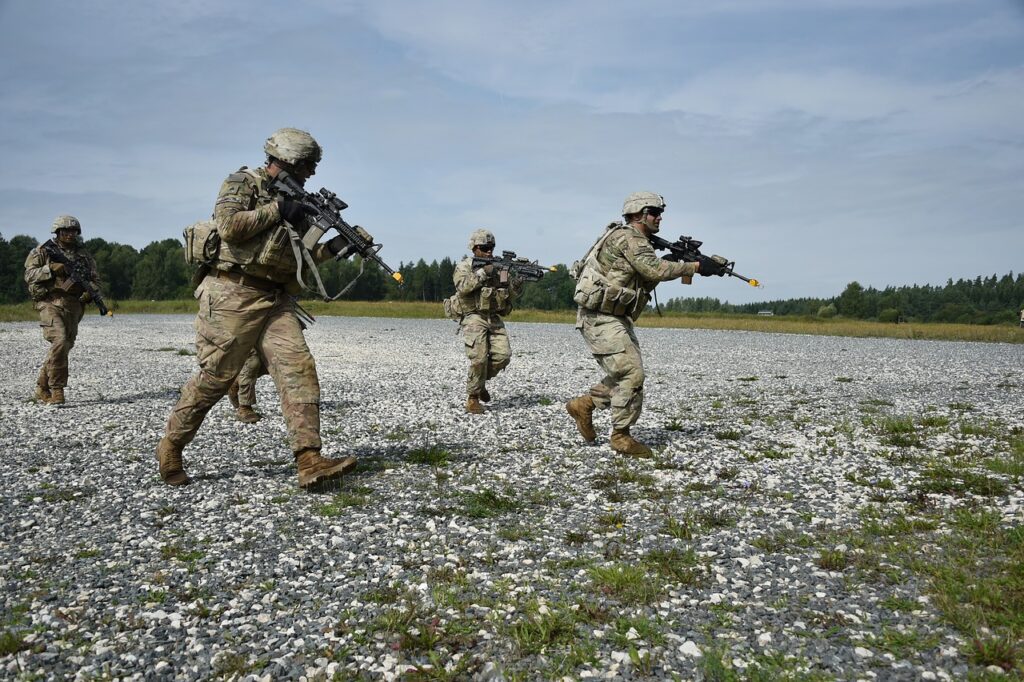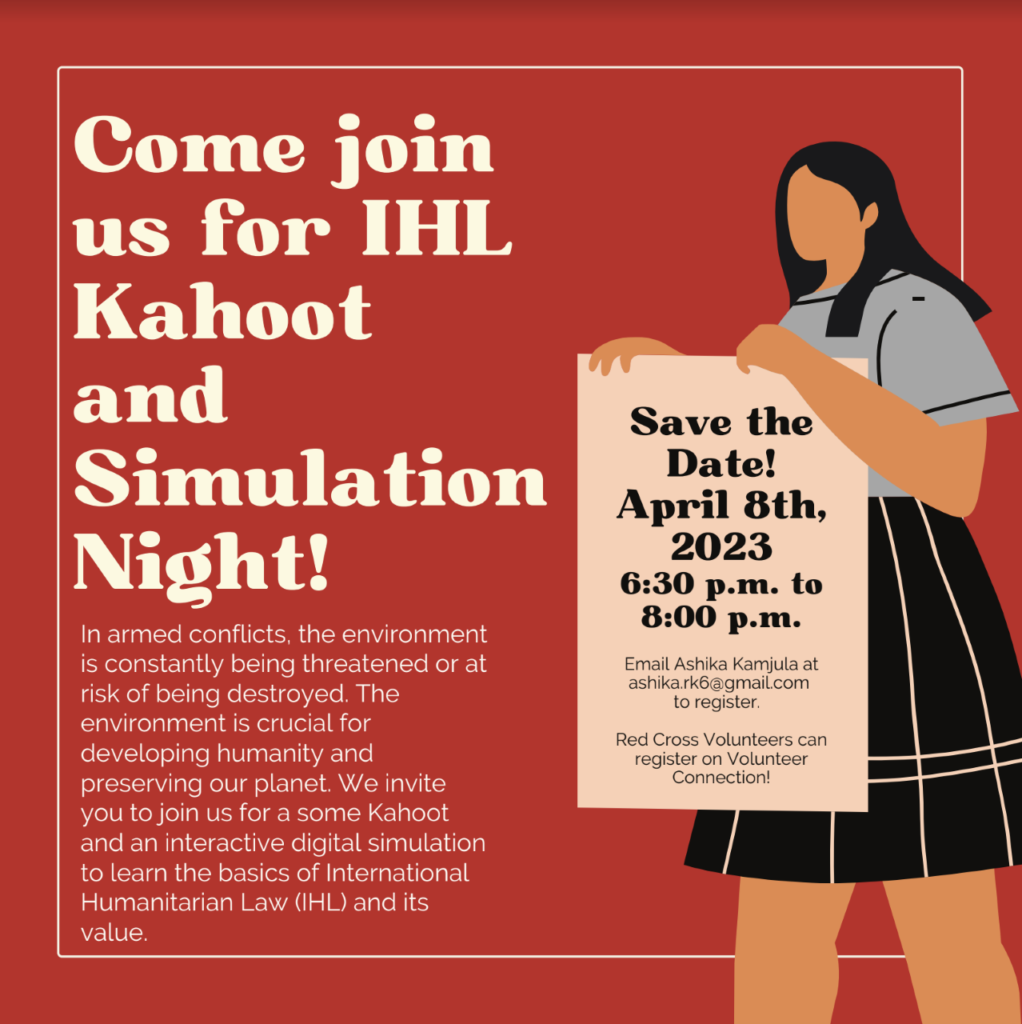Recently, I was honored with the special opportunity to represent the Southeast Caribbean Division at the International Humanitarian Law (IHL) YAC Summit in Washington DC, a month-long virtual and in-person event regarding International Humanitarian Law. From this event, I gained many valuable insights into Humanitarian and the function of the Red Cross.
What is International HUMANITARIAN Law?
First of all, I have to explain what International Humanitarian Law is. According to the definition from the International Committee of the Red Cross, “International Humanitarian Law is a set of rules which seek, for humanitarian reasons, to limit the effects of armed conflict. It protects persons who are not or are no longer participating in the hostilities and restricts the means and methods of warfare.” Essentially, IHL aims to protect civilians and limit human suffering during times of armed conflict.

My Experience with IHl
I was first introduced to International Humanitarian Law after I attended an International Humanitarian training session through my Red Cross region. This event was conducted by Alesia Sitka, a Service to the Armed Forces and International Services Program Manager. Through this event, I learned about what IHL is and the topics that go along with it. For example, the four principles: Military Necessity, Distinction, Proportionality, and Limiting Unnecessary Suffering. After learning about IHL and its topics, I felt like it was a call for me to join the IHL YAC campaign.
After deciding to join the IHL YAC campaign, I was put on a team of 2, which was led by Ashika Kamjula, a student from the North Carolina School of Math and Science. Our goal was to create an event to educate others on International Humanitarian Law. So we began to plan for what event we should do. After a few meetings, we decided on a virtual event, which involved a Kahoot and an Interactive Simulation. In this event, the attendees were to learn about International Humanitarian Law through training slides and then test their new knowledge through a Kahoot and an interactive simulation. We decided to host this event on April 8th, 2023.
On the day of the event, over 40 participants showed up to the event. we began this event by showing a presentation on IHL to our attendees. This presentation was similar to the training slides I was first introduced to. The presentation covered the main principles of IHL and the theme of the year: Environmental and Armed Conflict. Through this event, the attendees were able to gain a better understanding of International Humanitarian Law. After our presentation, we allowed our attendees to play a Kahoot and engage in an Interactive Simulation Event. In these two events, the attendees were able to test their newfound knowledge of IHL. In summary, the event was a big success in which we were able to introduce the topic of IHL to over 40 new attendees.

After the event, I was still interested in engaging more with International Humanitarian Law. Thus, I decided to apply to become an IHL summit attendee in Washington D.C. This YAC summit event was a combination of a month-long virtual event with a 4-day in-person event at Red Cross Headquarters. During the summit event, IHL YAC advocates are able to connect with one another and share their IHL campaigns from their respective regions. Also during this event, representatives are introduced to a variety of different opportunities such as interactive workshops, listening to guest speakers, participating in IHL activities, and touring Washington D.C.
After applying, I was selected to participate in the IHL YAC Summit. During the summit, I was able to meet many awesome people from across the country and learn many new things about the Red Cross and International Humanitarian Law. One of my favorite parts of the trip was being able to listen to renowned guest speakers such as Koby Langley and Michael Jordan. One thing I found interesting was Jordan’s experience as a marine. It was intriguing because I learned about how International Humanitarian Law is engaged in real situations. This made me realize that IHl takes a lot of intense decision-making than I had previously thought.
This was my experience with the IHL YAC campaign and the IHL Summit. I highly recommend others to participate in International Humanitarian Law and the Red Cross, so they can help make a difference in the war. International Humanitarian Law is important because it will help minimize suffering among combatants and civilians. It is also a way to save more lives and promote peace around the world.